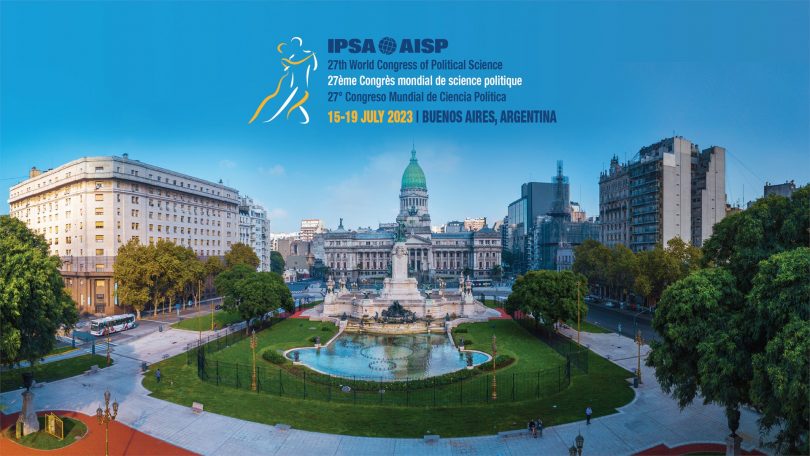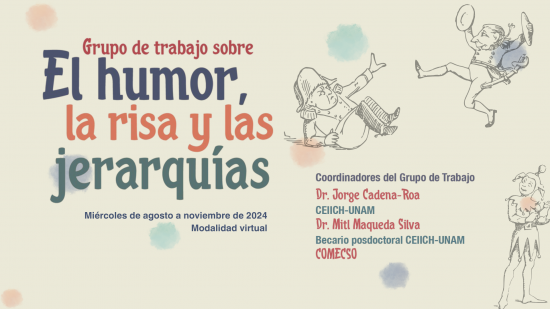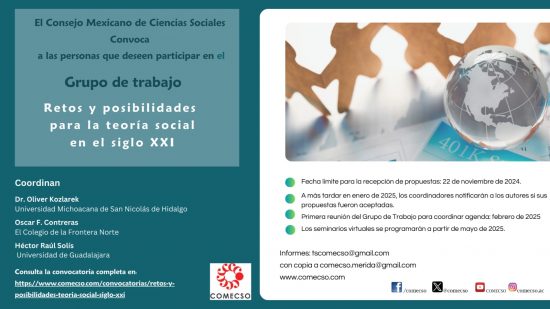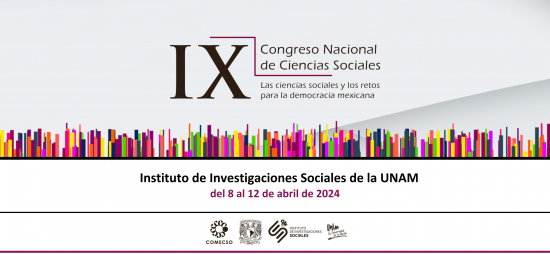27th World Congress of Political Science
Congress Theme
Politics in the Age of Transboundary Crises: Vulnerability and Resilience
Domestic and international politics are notably challenged by complex transboundary problems that include climate change, cyber terrorism, global migration flows, financial instability and the COVID-19 pandemic, among others. These problems are transboundary in the sense that they traverse state boundaries in an era of intense global connectivity. Disruptions in one part of the world quickly move around the globe through highly integrated global networks.
Transboundary issues expose the grave consequences of the tragedy of the commons as coordinated global responses are frequently inadequate and sometimes absent. Global collective action so urgently required to comprehensively manage transboundary issues is found wanting. States are challenged to manage effects on citizens and political institutions, often muddling through with vulnerabilities evident across the layers of political life.
But citizens, states and the global system are also resilient. The international order was briefly interrupted by the freezing of politics during the COVID-19 pandemic. States sought to respond to the immediate challenges of the pandemic, yet as the early waves passed through, global politics resumed along pre-pandemic fault lines. State capacity is a crucial focus in terms of collaborative approaches among both state and non-state actors to address the so-called ‘wicked’ problems in the age of transboundary crises. Many governments experience ‘rally around the flag’ effects with sharp increases in support following the political shocks of a transboundary problem (financial crisis, political violence, natural disaster, etc.) but these effects are temporal with normal politics through citizens, social movements, political parties and leaders inevitably reasserting itself. Transboundary dynamics also create opportunities. The diffusion of debates and action on human rights and specifically on matters relating to gender equality, anti-racism and LGBT rights have benefited from global coalitions of citizens and civil society organizations.
In order to investigate, understand and contribute to academic and public debates on these complex transboundary problems and opportunities, the discipline of political science needs conceptual lenses and theoretical approaches that span traditional disciplinary boundaries and cross over social, cultural, economic, religious, ethnic, sexual and linguistic delineations. Connecting theory and praxis is also important. Transboundary approaches are called for and these might include but are not limited to interdisciplinarity, sub-field pluralism and diversity of methodological approaches. We invite proposals for panels and roundtables on topics relevant to the theme using both domestic and international analytical lenses and focusing on multiple units of analysis that include citizens, social movements, political parties, leaders, public policies, states and IOs. We especially encourage international participation and collaboration by scholars across boundaries.
Euiyoung Kim (Seoul National University) and Theresa Reidy (University College Cork)
The 2023 IPSA World Congress of Political Science will be held in Buenos Aires, Argentina as an onsite event from 15 to 19 July 2023 with a limited number of virtual-only panels.
New Reduced Registration Rates Available
For the first time in IPSA’s history, the World Congress registration fee will be based on the country of citizenship of delegates. By recognizing the financial disparity between countries, citizens of Upper-Middle Income Economies and Low and Lower-Middle Income Economies now have access to reduced fees to attend the 2023 World Congress.
More Travel Grants
IPSA’s Global South Solidarity Fund helps political scientists from developing countries to attend the IPSA World Congress. Last year, 800 World Congress participants made a record contribution (US$36,640), enabling us to assist an even greater number of colleagues in financial need to attend the Congress.
The World Congress will deliver a rich program on the theme “Politics in the Age of Transboundary Crises” which is coordinated by Program Co-Chairs Euiyoung Kim (Seoul National University) and Theresa Reidy (University College Cork).
Key Dates
- Call for Proposals Opens: 20 September 2022
- Proposal Submission Deadline: 18 January 2023
Te puede interesar

Publicaciones del COMECSO
comecso - Dic 04, 2024Este espacio reúne la gran mayoría de la producción editorial de nuestra asociación. A lo largo de casi cinco décadas,…
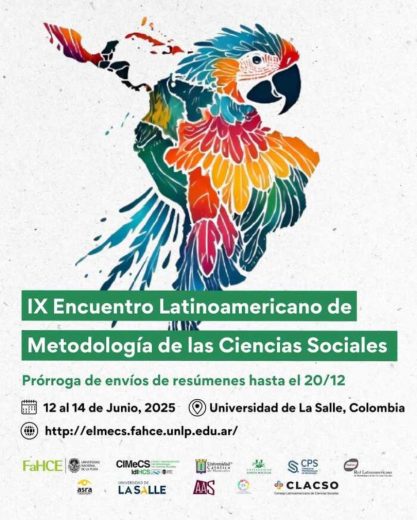
IX Encuentro Latinoamericano de Metodología de las Ciencias Sociales
Laura Gutiérrez - Dic 11, 2024IX Encuentro Latinoamericano de Metodología de las Ciencias Sociales Indisciplinar las ciencias sociales. Transformaciones y resistencias en las fronteras metodológicas…
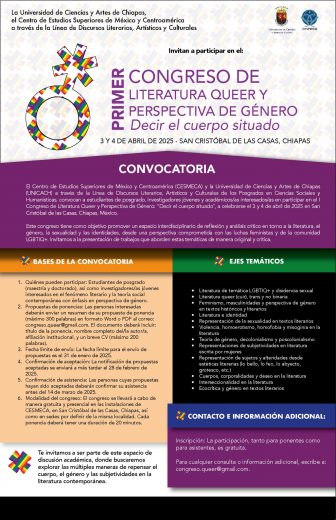
Primer Congreso de Literatura Queer y Perspectivas de Género: “Decir el cuerpo situado”
Laura Gutiérrez - Dic 11, 2024La Universidad de Ciencias y Artes de Chiapas, el Centro de Estudios Superiores de México y Centroamérica a través de…
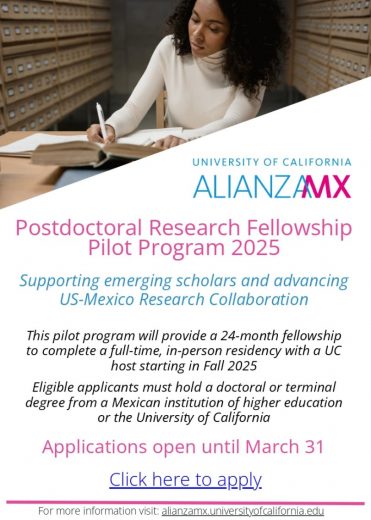
Postdoctoral Research Fellowships
Laura Gutiérrez - Dic 11, 2024University of California Alianza MX Postdoctoral Research Fellowships 2025 Pilot Program Deadline: March 31, 2025 The University of California Alianza…
